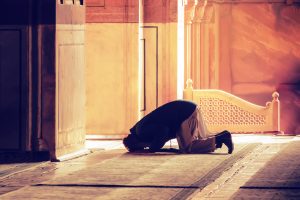MANSOOR CLARKE, LONDON, UK
Another year has passed and the month of Ramadan is upon us once again. So as around 1.6 billion Muslims embark on this journey, we take an in-depth look into the Muslim month of fasting.
What is the Point?
Muslims fast for a number of reasons, but quite simply we believe it makes us all the better for doing so.
Islam declares the two key components of a Muslim’s responsibilities as fulfilling the rights of God and fulfilling the rights of God’s creation.
Sawm, or fasting, is one of the five pillars of Islam and teaches us key human attributes including empathy, discipline and patience. But it also allows Muslims to earn the pleasure of God, for He has declared that He Himself is the reward for those who fast. In this way it enables Muslims to both better their relationship with God, and also their fellow man through good deeds and morals.
Does Being Hungry Make you Holy?
Simply skipping your crushed avocado on rye is not exactly a sure-shot guaranteed route to paradise, but then that’s because fasting is so much more than just staying hungry!
Islam teaches that fasting trains the body and soul by taking back control. A Muslim willingly abstains from things such as food and water which are lawful for him, in order to practice restraint and a spectrum of other qualities. By doing so, when the training finishes and normality resumes, they often find it easier to stay away from things prohibited by Islam. Plus, it is not just about eating. Increased worship, reflection and the doing of good to others (including charity) all contribute to what it means to be ‘fasting’.

Oops! – What Happens if I Miss One?
Fasting during Ramadan is compulsory on all mature, able Muslims, but the special exemption is given to those who need it, such as the unwell, travelers or expecting and nursing mothers. The breaking of a fast during Ramadan can be for a number of reasons but there are easy ways to make sure you’re covered!
For those who are unable to fast on a particular day, a fidya, or expiation, can be given, which in today’s day and age can be the feeding of those in need or the paying of a set amount of money towards feeding the hungry. Alongside this, if you recover and feel fit enough, you may also perform the fast later on in the year to make up for it as well.
Is Fasting Unique to Islam?
Fasting is practiced by many different religions and faiths around the world, albeit in different forms, with different guidelines and to different ends. The Holy Qur’an clearly indicates that fasting is an ancient practice. Many prophets and saints practiced fasting as a means of sharpening their spiritual faculties. In fact, with everything from low-fat and low-carb, to the Atkins, Warrior or 5:2 diet, we see that fasting is not even unique to religion either!
Having said this, it is important to note that fasting is not just about the intake of food. The fasting prescribed by Islam takes place between sunrise and sunset and lasts for one lunar month, and abstention from food and water (as difficult as it may be for some!) is simply a vessel to promote spiritual and personal growth.
Other religions practise forms of fasting such as the Christian period of Lent in which certain items can be chosen to be abstained from, Ekadashi for Hindus during which foods like rice, grain and flour are avoided, or the annual Yom Kippur, or Day of Atonement, for the Jewish community, where alongside food and drink, many Jews will neither wash nor wear leather footwear either.
When Do You Stop?
The month of Ramadan is based on the lunar calendar, and hence changes ever so slightly every year depending on the movements of the moon. Ramadan begins and ends with one full cycle of the moon, with the end of the fasting being declared at the sighting of the new moon. Nowadays this can be predicted with the use of modern technology as we are able to know in advance when the moon will be visible with the naked eye.
Once the moon is sighted, the month of fasting is declared complete and the following day is announced as the day of Eid-ul-Fitr: a day of worship, reflection and celebration.
Eid brings the whole community together to worship God and provides a chance to make a firm resolve to sustain and maintain the changes and spiritual progress made in the blessed month just past.
About the Author:
Mansoor Clarke is a British, UK-born Imam who pursued a career in journalism before becoming an Imam. He has delivered numerous lectures at some of the UK’s top universities and is a regular contributor to newspapers and the broadcast media. Mansoor has served as a spokesperson for the Ahmadiyya Muslim Community and has commented on the BBC, ITV, and Sky amongst others. At present, he is based at the Baitul Futuh Mosque, the biggest mosque of Britain. He can be found on Twitter @mansoor_clarke.




Add Comment